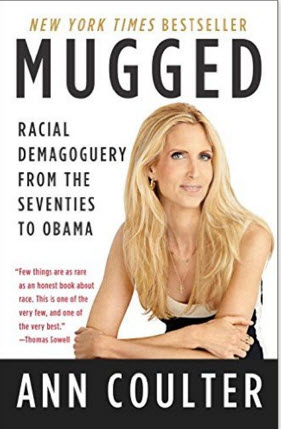This semester, I am teaching a course on multiculturalism in the media.
As part of the course, I have assigned a number of readings related to multiculturalism.
This past week, my students read Ann Coulter’s, “Mugged: Racial Demagoguery from the Seventies to Obama.”
The book explores what Coulter describes as the misuse of race in politics in the decades after the Civil Rights Movement.
She assigns a large part of the blame to the “fact-resistant media.”
Regardless of political and racial ideology, I recommend people read the book, if for no other reason than to educate yourself on alternative points-of-view.
In my class of diverse students, the book definitely prompted a lively conversation.
During the discussion, a student asked whether a formal apology to blacks was necessary for the country to move on from past and ongoing racial strife. If so, who should issue that apology and what should it entail?
Students offered an assortment of answers, with some interested in reparations and mostly all coming to the consensus that President Barack Obama could not be the one to issue the apology.
The question was so intriguing I later asked a friend about it.
He wasn’t sure how to answer it.
Personally, I think an apology is warranted, but it should come in the form of action rather than just empty words.
I think there have been plenty of steps already made toward this elusive “apology,” but there is certainly a lot more to be done.
I thought I would pose the same question here for my readers.
Is a formal apology necessary for the country to move past racial tensions? If so, who should issue the apology and what should it entail?
As part of the course, I have assigned a number of readings related to multiculturalism.
This past week, my students read Ann Coulter’s, “Mugged: Racial Demagoguery from the Seventies to Obama.”
The book explores what Coulter describes as the misuse of race in politics in the decades after the Civil Rights Movement.
She assigns a large part of the blame to the “fact-resistant media.”
Regardless of political and racial ideology, I recommend people read the book, if for no other reason than to educate yourself on alternative points-of-view.
In my class of diverse students, the book definitely prompted a lively conversation.
During the discussion, a student asked whether a formal apology to blacks was necessary for the country to move on from past and ongoing racial strife. If so, who should issue that apology and what should it entail?
Students offered an assortment of answers, with some interested in reparations and mostly all coming to the consensus that President Barack Obama could not be the one to issue the apology.
The question was so intriguing I later asked a friend about it.
He wasn’t sure how to answer it.
Personally, I think an apology is warranted, but it should come in the form of action rather than just empty words.
I think there have been plenty of steps already made toward this elusive “apology,” but there is certainly a lot more to be done.
I thought I would pose the same question here for my readers.
Is a formal apology necessary for the country to move past racial tensions? If so, who should issue the apology and what should it entail?
Book cover retrieved from Amazon.com

 RSS Feed
RSS Feed